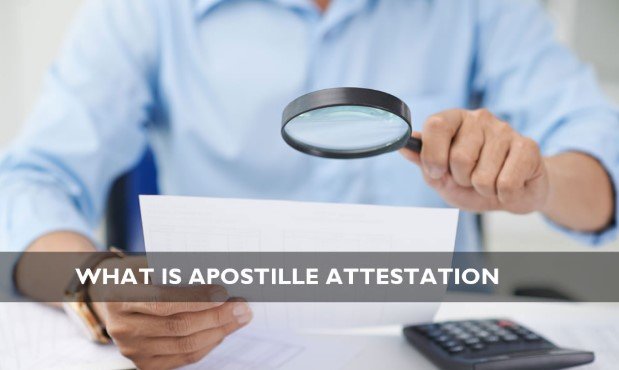Document attestation in India refers to the process of authenticating documents through official stamp or signature from designated authorities, in order to certify their genuineness when used both within India and internationally for various purposes such as educational certificates, marriage licenses, birth certificates or any legal document that require verification or validation. Attestation may also apply when applying for visas overseas. Attestations are needed when using documents like educational degrees or degrees abroad for employment opportunities abroad and passport applications within India as well.
What is Meant by apostille in india
The Apostille, or international legalization is an internationally accepted form of document authentication. The Hague Convention simplifies the certification process for authenticating public documents that will be used in other countries. Apostille Convention or the Hague Convention to Abolish the Legalization Requirement for Foreign Public Documents is an international agreement that streamlines legalization of foreign public documents among its member states.
When a document in India is apostilled it means it has been authenticated by a certificate Apostille Service in Hyderabad. The apostille is a certificate that certifies authenticity of signatures and seals of those who authenticated the documents. The document can be accepted without additional authorization and is legitimate in all nations that have ratified the Hague Convention.
The main objective of an apostille in India is to make using Indian documents abroad easier and more efficient.
- Educational Documents include diplomas and certificates of education for employment, further study abroad, or other purposes.
- Personal documents include birth certificates, marriage certificates, and any other document that can be used for immigration or as proof of residency.
- Commercial Documents include documents related to international transactions, such as power of attorneys, company registrations and trade licenses.
In India, the Ministry of External Affairs is usually in charge of apostille Indian documents. Documents often require a number of attestations from local authorities, state government officials, and the MEA before they can receive an apostille.
Note that some countries do not adhere to the Hague Convention and may have different requirements for document legalization. Individuals who wish to use Indian documentation abroad must check with the country of destination and adhere to the proper procedures.
Here’s an introduction to document attestation in India:
1. Attestation by Notary Public:
As the initial step, notarizing documents is often necessary. A notary public verifies any document presented for certification by notarization.
2. Home Department Attestation
In certain instances, documents require further authentication from the Home Department in their state. This may necessitate notary attestation followed by verification from them directly.
3. SDM Attestation:
For personal documents like birth and marriage certificates, SDM (Sub-Divisional Magistrate) attestation may be required.
4. MEA (Ministry of External Affairs) Attestation:
After being validated at the state level, papers meant for use overseas frequently require further verification through the Ministry of External Affairs attestation procedure in New Delhi. This step can be particularly important.
5. Embassy Attestation:
When intended for use in another country, some documents require attestations by its Embassy/Consulate in India.
6. Apostille:
Some countries that adhere to the Hague Convention recognize an Apostille as a quick, cost-effective form of document authentication; MEA provides Apostille stamps when this service is required.
Read More: A Comprehensive Guide to Artificial Intelligence and Machine Learning
Document Required for Apostille Attestation
Document attestation can serve multiple purposes, from applying for work abroad and higher education abroad, obtaining visas or legalizing documents used in business transactions. Specific requirements and authorities involved depend upon the document type and its intended use – it’s vitally important that we follow prescribed processes so as to guarantee its acceptance and legitimacy within its desired environment.
Documents required for an apostille may differ depending on both the document type and country you wish to apostille. Here is a list of the most common documents required for an apostille:
1. Educational Documents:
- Certificates of Degree
- Diplomas
- Label sheets
- Transfer Certificates
2. Personal Documents:
- Birth Certificates
- Marriage Certificates
- Death Certificates
- – Divorce decrees
3. Commercial Documents:
Documents relating to company registration
- Power of Attorney
- – Board resolution
- – Trade licenses
4. Public Documents:
- Documents notarized
- Affidavits
- Orders of the Court
5. Other Documents:
- Police Clearance Certificate
- Copy of passport
- – Visa copies
6. Covering Letter:
The letter of request for the Apostille Services In Mumbai should include details such as the destination, purpose and the contact information.
Keep in mind that every nation may have distinct standards, and some may adhere to certain apostille regulations. Some documents will also need to be apostilled by local authorities such as the notary, home department or Ministry of External Affairs in India.
It is important to follow all the necessary procedures and check for any specifics of the country you are requesting attestation from. Approving Indian documents is the responsibility of the Ministry of External Affairs of India.
